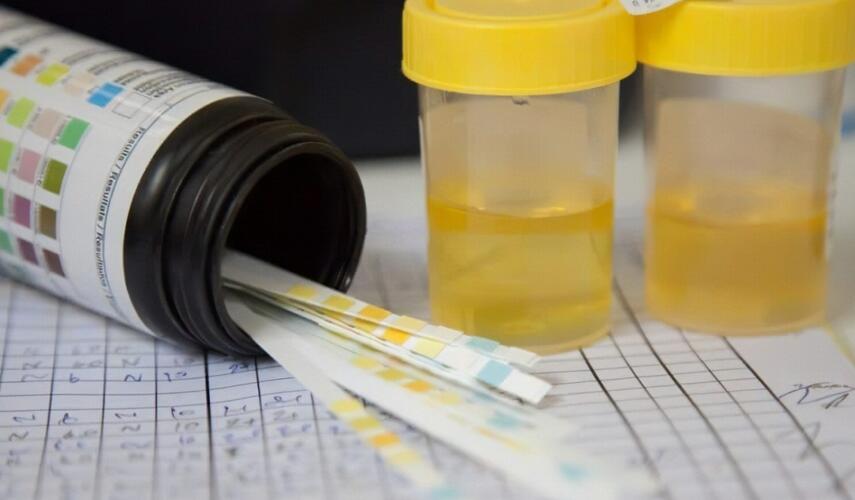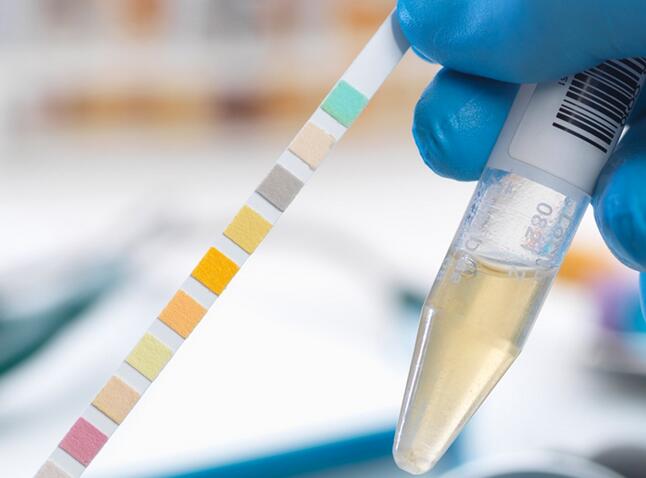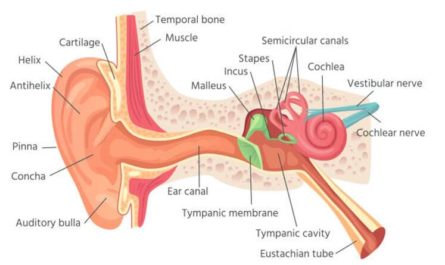Have you ever noticed a strange smell coming from your urine? Perhaps it smells sweet or fruity or even like nail polish remover. If so, you may be experiencing increased ketones in your urine. Ketones are organic compounds that can be produced by your body when it burns fat for energy instead of glucose. This process is known as ketosis, and it can occur for various reasons, such as fasting, following a low-carb diet, or in people with diabetes.
While some ketones in urine are normal, excessively high levels can cause concern, which may indicate a severe medical condition. In this article, we will explore the causes, symptoms, and what you can do to prevent this condition.

What is the normal range and dangerous level of Ketones in Urine?
The normal range for ketones in urine can vary depending on the specific laboratory or testing method. However, in general, the normal range for ketones in the urine is less than 0.5 millimoles per liter (mmol/L) or negative.
Generally, a dangerous level of ketones in the urine is typically considered to be above 3.0 mmol/L. However, the specific threshold for dangerous ketone levels may vary depending on the individual and the underlying cause of the ketosis. For example, people with diabetes may have a lower threshold for dangerous ketone levels and should monitor their ketone levels regularly.
What is Ketones in urine means?
Ketones in the urine indicate a medical condition known as ketosis. Ketosis occurs when the body does not have enough sugar (glucose) for energy and instead starts to break down stored fat for energy. The by-product of this fat breakdown is ketones, which are acidic compounds released into the bloodstream and eventually excreted in the urine.
Ketones in the urine are usually detected with a urine dipstick test and can indicate a range of medical conditions, from diabetes to certain types of kidney disease. It can also be caused by fasting, starvation, overexercising, or excessive alcohol intake.
Signs and Symptoms That You’re in Ketosis
Here are some signs and symptoms that you may experience when you’re in ketosis:
- Increased ketones in the blood or urine
- Bad breath (often described as fruity or sweet)
- Decreased appetite or reduced hunger
- Weight loss
- Increased energy and mental clarity
- Increased thirst and dry mouth
- Changes in bowel movements (such as constipation)
- Difficulty sleeping
- Flu-like symptoms (such as headaches, nausea, and fatigue) in the early stages of ketosis

14 Common Cause Ketones in Urine
1. Poorly Controlled Diabetes
Diabetes is a severe metabolic disorder that occurs when the body cannot produce enough insulin or properly use the insulin it produces. When poorly controlled, diabetes can cause an accumulation of ketones in the urine.
Ketones are acids formed when the body breaks down fat for energy instead of glucose. This can occur when glucose levels are consistently high, as the body will rely on fat for energy instead. (Source)
High levels of ketones in the urine can lead to ketoacidosis, a severe medical condition characterized by nausea, vomiting, abdominal pain, confusion, and fruity-smelling breath. This can be life-threatening if left untreated.
To avoid the accumulation of ketones, it is essential to maintain proper control of diabetes. This includes regularly monitoring blood glucose levels and taking the appropriate medications or insulin. Furthermore, following a healthy diet and exercise routine is essential to help keep glucose levels in check.
2. Underlying infection or illness
Diabetes is one of the most common underlying causes of ketonuria. When the body cannot produce enough insulin to break down glucose, it begins to break down fat.
Infections can also lead to ketonuria. Common conditions that cause ketonuria include urinary tract infections, pneumonia, and meningitis.
Metabolic disorders like Addison’s disease and Cushing’s syndrome can also cause ketonuria. In Addison’s disease, the adrenal glands do not produce enough hormones, causing the body to break down fat and protein for energy.
Cushing’s syndrome is caused by an overactive pituitary gland, which can produce excessive cortisol and cause ketonuria.
3. Ketogenic Diet
The ketogenic diet is a low-carbohydrate, high-fat diet designed to induce a state of ketosis in the body. Ketosis is a metabolic state in which the body burns fat for energy instead of glucose from carbohydrates.
One of the byproducts of fat metabolism in the liver is ketones, which the body can use as an energy source, including the brain.
Following a ketogenic diet, the body produces and uses ketones for energy instead of glucose. As a result, ketones can be detected in the urine, indicating that the body is in a state of ketosis.
Therefore, ketones in the urine are a normal outcome of following a ketogenic diet. However, If the levels are too high, it could mean that the person is overeating fat or not eating enough carbohydrates.
4. Long-term Vomiting or Diarrhea
Long-term vomiting and diarrhea can cause ketones in the urine. This is because when the body cannot absorb enough nutrients from food, it will break down fat for energy instead.
As a result, ketones are produced and excreted in the urine. People who suffer from chronic vomiting or diarrhea may experience dehydration, electrolyte imbalances, and increased ketone levels.
It is essential to seek medical attention immediately if you experience long-term vomiting or diarrhea, as it can lead to severe medical conditions, such as ketoacidosis.
Treatment may include replacing lost fluids with oral or intravenous fluids and electrolyte replacement. If the underlying cause of the vomiting or diarrhea is not treated, the ketone levels may remain elevated.
5. Diabetic Ketoacidosis
Diabetic Ketoacidosis (DKA) is an acute complication of diabetes caused by a severe shortage of insulin. It occurs when the body breaks down fat for energy instead of glucose, producing acidic ketones. These ketones then spill over into the urine, causing ketones to be present.
The most common symptoms of DKA are frequent urination, increased thirst, fatigue, nausea, and vomiting. If left untreated, DKA can be life-threatening.
Other risk factors include a lack of physical activity, dehydration, and stress. Treatment for DKA involves restoring normal body fluid levels, replacing electrolytes, and administering insulin to reduce ketone levels. If detected and treated early, DKA can be reversed and managed effectively.
6. Starvation
Starvation can cause ketones to appear in the urine. These ketones are produced when the body breaks down fatty acids for energy. When a person is not consuming enough food, the body will draw on fat stores as an energy source. (Source)
This causes the breakdown of fatty acids, resulting in the production of ketones. Ketones in the urine indicate that the body is not getting enough food and is forced to break down fat for energy.
If left untreated, starvation can cause long-term health problems and even death. To avoid ketones in the urine due to starvation, it is essential to ensure that a healthy and balanced diet is being consumed.
This can include a variety of foods from all food groups, including proteins, carbohydrates, and fats. Eating regularly throughout the day can also help ensure the body does not deplete its energy stores.
7. Excessive Exercise
Excessive exercise can cause the body to produce ketones, leading to ketones in the urine. Ketones are by-products of fat breakdown and are used by the body as an energy source. When the body produces too many ketones, it can lead to ketoacidosis. This is a health emergency and can be life-threatening.
The best way to avoid excessive ketone production is to avoid over-exercising. Listening to your body and taking regular breaks during exercise is essential. Stay hydrated and drink plenty of fluids to replace lost electrolytes.
8. Alcohol Use Disorder
Alcohol Use Disorder (AUD) is a severe medical condition that can cause ketones to appear in the urine. AUD is caused by excessive and chronic alcohol consumption. When the body breaks down alcohol, it produces ketones, which can be detected in urine.
AUD affects how the body metabolizes alcohol, leading to an excessive build-up of ketones in the blood. This, in turn, causes ketones to be excreted in the urine. Ketones are a type of acid, and their presence in the urine can indicate that the body is breaking down fat instead of using carbohydrates for energy.
People with AUD may also experience dehydration, leading to ketones appearing in the urine. Dehydration causes the body to break down fat for energy, resulting in the production of ketones.
9. Stress
Stress can cause an increase in ketones in the urine. This occurs when the body breaks down fat for energy, which it does in response to stress.
When the body breaks down fat, it produces ketones, which can be detected in the urine. Stress can also cause an increase in cortisol, which increases the body’s metabolic rate, leading to an increase in ketones.
High-stress levels can also lead to dehydration, increasing ketone levels in the urine. In addition, stressed people may also have poor eating habits and consume too many carbohydrates, which can increase ketones in the urine.
10. Eating Disorders
Eating disorders are severe mental health conditions that can lead to the production of ketones in your urine. It can cause starvation. This will lead to extreme caloric restriction and forces the body to break down fat for energy. In addition, this can induce ketosis and, subsequently, the presence of ketones in your urine. ( Source)
11. Pregnancy
Pregnant women often have elevated levels of ketones in their urine, as the body is forced to break down existing fat stores for energy.
This is especially true during the third trimester when the baby proliferates. High levels of ketones in the urine may indicate gestational diabetes or other metabolic conditions and should be monitored closely by a healthcare provider.
12. Severe Infections
Severe infections, such as pneumonia, can cause the body’s metabolism to shift, resulting in elevated levels of ketones in the urine.
The body is forced to break down fat cells to generate energy, and the ketones are a byproduct. It is essential to seek medical attention if you have a severe infection and are experiencing increased levels of ketones in the urine.
13. COVID-19
People infected with COVID-19 may experience increased levels of ketones in their urine as the body is forced to break down fat energy stores.
In some cases, this can be severe, resulting in ketoacidosis, a dangerous condition where the body cannot effectively process the ketones in the urine.
14. Certain medications
Certain medications, such as diuretics, can cause elevated levels of ketones in the urine. Ketones are compounds produced when fatty acids are broken down for energy. When a person takes diuretics, they increase their urine output, and the body breaks down more fatty acids, thus increasing the number of ketones in the urine.
These medications include corticosteroids, which are used to treat various medical conditions, as well as certain antibiotics and chemotherapy drugs. In some cases, the medicines may cause the body to produce more ketones than it can use, resulting in elevated levels in the urine. (Source)
Ketones and Ketone Urine Test
A ketone urine test is a simple test that can be done at home or in a healthcare setting to check the level of ketones in your urine. People often use it following a low-carbohydrate or ketogenic diet to monitor their ketone levels.
The test involves using a special strip dipped into a urine sample. The strip contains a chemical that reacts with ketones and changes color. The strip’s color is then compared to a color chart to determine the level of ketones in the urine.
Understanding Your Ketones in Urine Test Results
Abnormal ketone results in urine tests are classified into three categories: small, moderate, and large. A small amount is 20 mg/dl, while average levels range from 30 to 40 mg/dl. Large amounts of ketones in urine are considered to be over 80 mg/dl.
What to Do If You Have Small Ketone Levels
If your ketone in urine test result shows a small amount, it’s still essential to consult your doctor and continue testing every few hours. Even small ketone levels can indicate that your body is using fat instead of glucose as its primary energy source, which may indicate a health issue such as diabetes or an unhealthy diet.
What to Do If You Have Moderate or Large Ketone Levels
If your test results show moderate or large amounts of ketones in your urine, you must contact your healthcare provider immediately. High levels of ketones can be a sign of a dangerous condition called ketoacidosis, which occurs when your body produces too many ketones and becomes too acidic.
It’s also crucial to avoid exercising when your ketone levels are high, or your blood sugar is elevated, as this can worsen the effects. Instead, focus on staying hydrated and resting until you can receive proper medical attention.
Additional Tests Your Doctor May Recommend
If your urine test results show high levels of ketones, your doctor may check the amount of ketones in your blood and perform additional urine tests to determine the underlying cause. These tests may include checking your blood glucose, protein, and the pH or acid levels in your urine.
When should you see a doctor for Ketonuria?
If you are experiencing frequent urination, extreme thirst, nausea, vomiting, weakness, or confusion, seeing a doctor as soon as possible is essential.
Additionally, if you have diabetes, monitoring your ketone levels regularly and seeking medical attention if they become elevated is crucial. Untreated ketonuria can lead to a dangerous condition called ketoacidosis, which can be life-threatening.
Therefore, if you suspect you may have ketonuria, it’s always best to see a doctor to determine the underlying cause and receive appropriate treatment.






